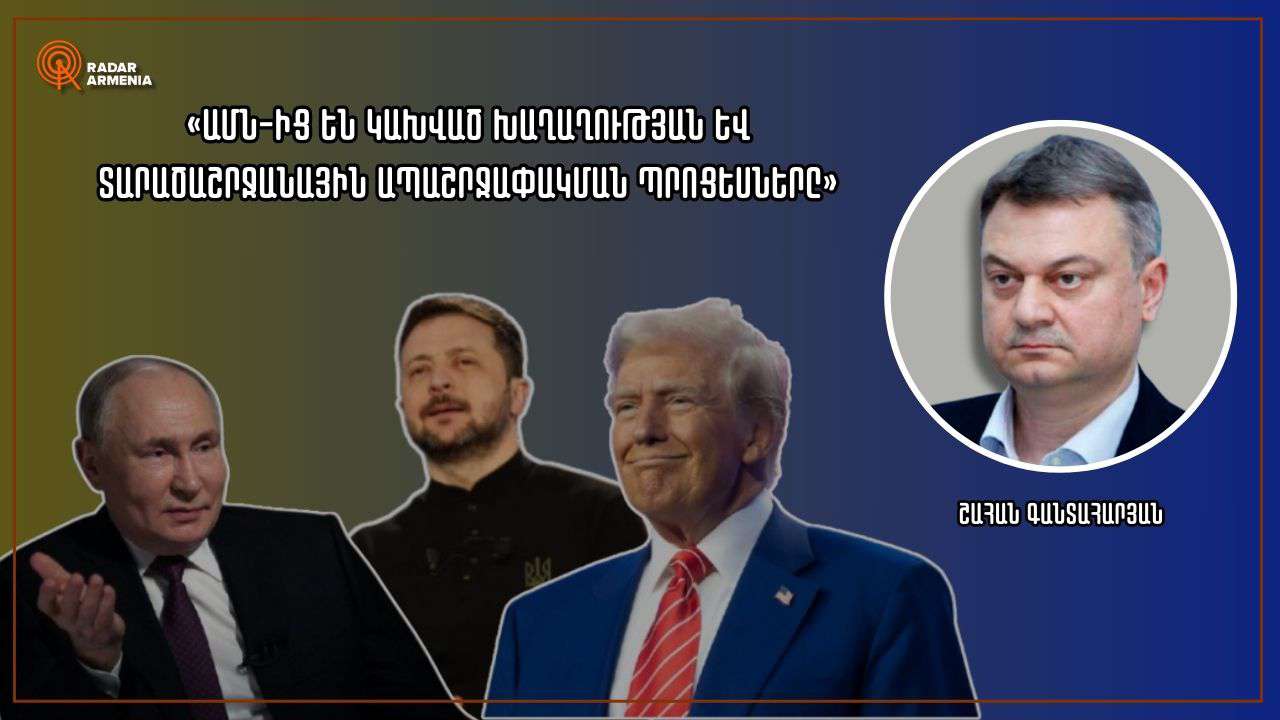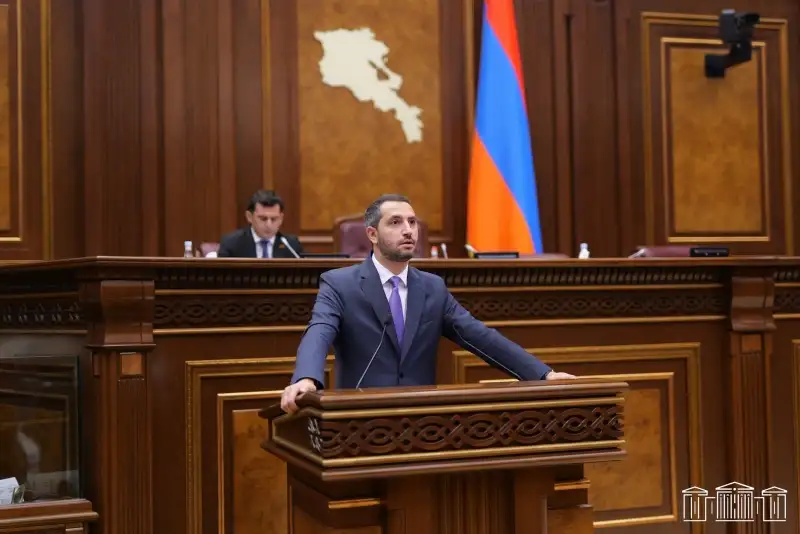Radar Armenia's interlocutor is international affairs expert Shahan Gandaharian.
- Despite active Russian-American negotiations, an agreement on the Ukrainian issue has not yet been reached. I want to ask you to present your point of view on why.
- US-Ukrainian negotiations are underway before the ceasefire agreement on the Ukrainian war or the Russian-Ukrainian negotiations. An agreement on this direction has already been announced. The deal concerns the use of Ukrainian resources or the management of nuclear centers. The main goal of the US is to obtain reserves of mines or rare metals. The nail in the demonstrative dispute between Trump and Zelensky in Washington was a reminder of the hundreds of billions in bonds provided by the US. Now, the US will receive these funds regarding mines and resources. After this stage, the process will intensify in China. In any case, the US is already present near Russia and in Ukraine.
- The Ukrainian President has announced that the land concessions to Russia will not be discussed. "We will not give our lands to Putin." Is it possible to return to the pre-war borders, or will the parties still have to consider the current situation?
- The current situation will create a new status quo. Until then, Russian forces will continue to control the territories they currently control, while the US will exploit economic resources and strengthen its positions in the regions bordering Russia. In essence, the US and Russia are sharing Ukraine.
- The Russian President has proposed discussing the issue of introducing an interim government in Ukraine under the auspices of the UN and several countries to hold elections there. Would that option be possible, and could it be considered a solution?
- The further electoral processes are still unclear. Such a scenario is unlikely to materialize before the ceasefire, and the pre-ceasefire situation will still have to go through turbulent stages. There will be a breakthrough situation in the short term.
- Let's also touch on regional developments. The representative of the Azerbaijani President, Elchin Amirbekov, called on the Armenian side to speed up the process of signing a peace agreement, noting that this opportunity will not last forever. After all, does Baku want to sign a peace agreement or not?
- Amirbekov's statement has a threatening tone: tomorrow, a worse situation may arise for Armenia. This is what he is basically saying. Yerevan said that it was ready to sign, but Baku did not respond. On the contrary, he is putting forward new preconditions. Amirbekov is misleading public opinion; allegedly, Armenia is hindering peace. This is Baku's traditional behavior.
- Do you see a possibility of signing a document by the end of the year?
- Influential factors can play a decisive role here. If Ankara decides to pressure Baku to sign a peace treaty, the probability will increase. On the surface, the opposite is true. Baku complains when Ankara, for example, temporarily opens the border crossing. Ankara continues to intertwine the processes.
The peace and regional de-blockade processes depend mainly on the United States. If Washington considers all of these important steps to weaken, counterbalance, or generally eliminate the Russian factor, the processes will enter a practical phase.
Arman Galoyan


















